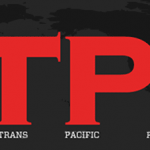
The post What Is The TPP And Why You Should Care appeared first on HostGator Blog | Gator Crossing . Over the last year the news has been filled with more and more information on the TPP, or Trans-Pacific Partnership. Some people are for it, some people are against it, and some wish to receive more information about the TPP before they decide. There are a few issues with this. The TPP is, at its core, a trade alliance, one that if agreed upon will create a partnership between twelve countries. Now, we have many different trade alliances between the U.S. and countries around the world, and there are those that argue that this is just one more. It is someone else’s responsibility to know what’s going on, they might argue, or they, mistakenly, believe that it doesn’t concern them. We let you know about SOPA back in 2011, and now we’re letting you know about TPP, or, to be more accurate, we are letting you know what it is possible to know about the TPP. There are many different areas covered, from food to imports and exports, but the reason we bring it to your attention is due to its potential effects on the internet. A Secret? As a precursor, it is important to note that there is a distinct lack of transparency associated with the TPP; unlike other trade agreements of the past, this one is being done in secret, and very little information is making its way to the public eye, all of which has been leaked. From those documents, however, it is possible to see that many of the principles of SOPA that we disagreed with so strongly have been included in the TPP. Though it will do far more than this, and affect far more areas than just the Internet, the most important thing for Internet users to pay attention to is the fact that it will work to decrease the online rights of companies and users alike, reducing Internet freedoms and working to increase the likelihood of net neutrality disappearing into the mists of time, something spoken of as a myth that never was. These online freedom restrictions would not only work to restrict, and in some cases, remove freedom of speech from the internet, but, in essence, the parties who are in agreement with the TPP would have to abide by the same laws as the country with the strictest control over their users’ internet usages; an approach that would include the necessity of users to take down pages without question and remain down until such a time as the site owner could prove the right to post it, instead of applying the traditional laws that require the hosting provider to provide proof to the owner that the site must be removed and must provide the owner with a reasonable amount of time to do so before blocking access to the site itself. Things Continue to Unfold As more and more information on the TPP is leaked, more users are working to take action, lobbying politicians to take action against approval of the TPP. Google’s placed considerable time and effort into doing so, and now the AFL-CIO (American Federation of Labor and Congress of Industrial Organizations – a national trade union center) is pushing for the government to decline to participate as well. As we said back in 2011 – “We here at HostGator support a free internet. An internet in which free information and unhindered distribution of said information is an unalienable human right.” We still stand by this statement and we believe that you need to know what is occurring in regards to this most troubling piece of legislation. Image Source: Electronic Frontier Foundation. (2014). TPP Banner. [image online] Available at: https://www.eff.org/sites/default/files/TPP-banner.png [Accessed: 27 Mar 2014]. web hosting
